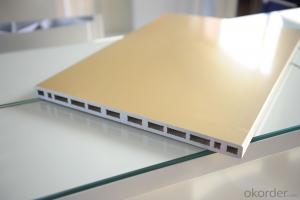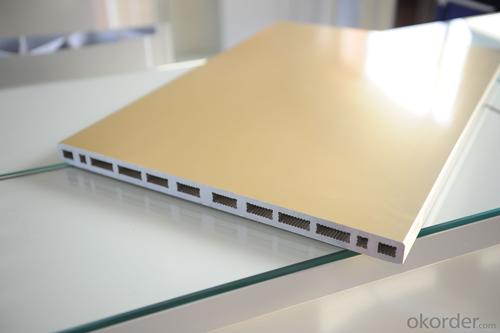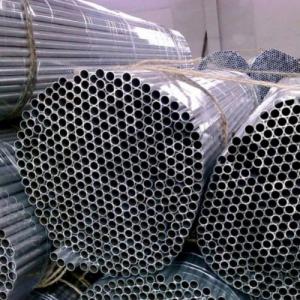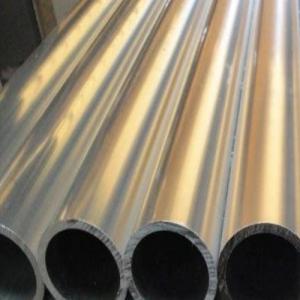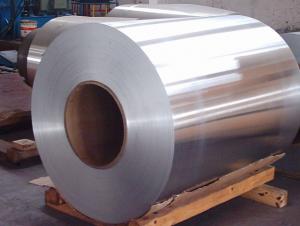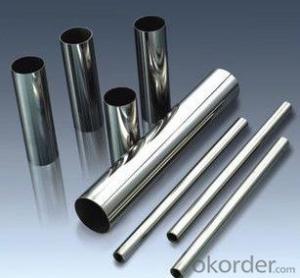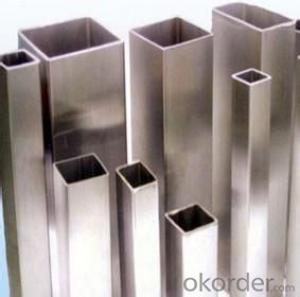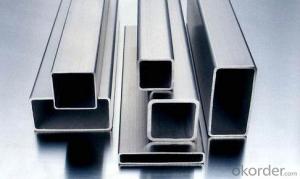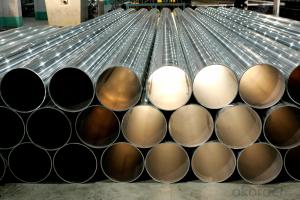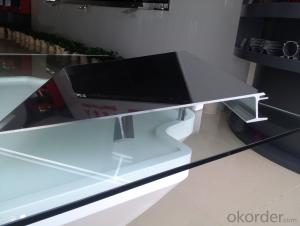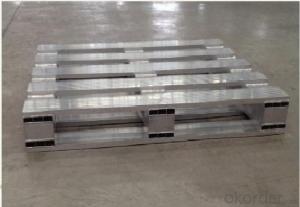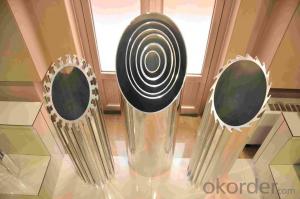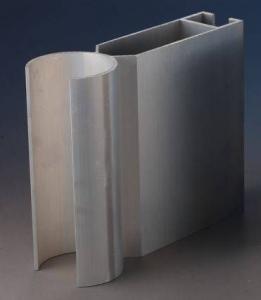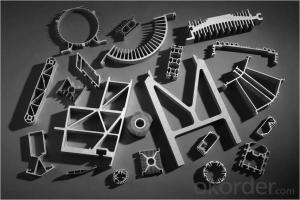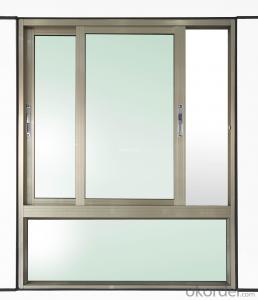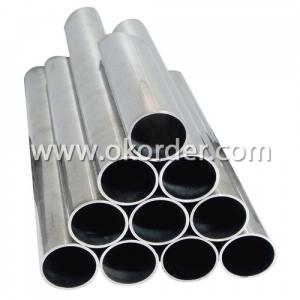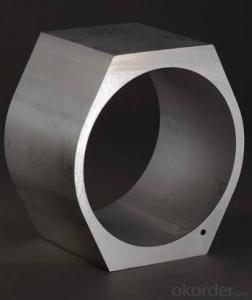Aluminum Ship Plate Pipes
OKorder Service Pledge
OKorder Financial Service
You Might Also Like
We are the largest aluminum profilemanufacture in
Material | Alloy Aluminum 6063,6061,6005,6082 or customer nominated |
Temper | T3, T4, T5, T6 and other |
Surface | Anodize, electrophoresis, powder coating, PVDF coating, wood grain painting, etc. |
Colour | Any colour based on Standard Germany RAL Mark |
Length | Not more than 16 meters |
Good Package | Inner plastic film /outside carton/wooden pallets |
Payment Method | T/T, L/C, etc |
Delivery Time | Normally 2-4 weeks, Delivery time can be consulted. |
Press Machine | 500-12500 tons all together 93 press lines. |
Fabrication | 1. Furniture 2. Drilling; 3. Bending; 4. Cutting; 5. etc. |
Certificate | ISO/TS 16949,DNV,IRIS,CCS,AFA,etc. |
Dies | 1. Using our dies, no fee; |
2. Using customer drawing, opening dies, usually about 5~50 tons then the dies cost can be refunded. | |
3. Die cost is negotiable base on the order quantity | |
Capability | Annual output 800,000 tons |
- Q: Are aluminum pipes suitable for greenhouse structures?
- Yes, aluminum pipes are suitable for greenhouse structures. Aluminum is a lightweight and durable material that is resistant to corrosion, making it ideal for greenhouse construction. It provides excellent strength and stability while allowing for easy installation and maintenance. Additionally, aluminum pipes have good heat conductivity, which helps in maintaining the desired temperature inside the greenhouse.
- Q: How to distinguish between copper tube or aluminum pipe?
- Copper is yellow and aluminium is whiteIf it is copper plated, cut the tube and see the fracture to see whether it is copper plated
- Q: 6063, aluminum pipe bending performance, hardness of the best value?
- As a kind of high strength aluminum alloy, heat treatment can be strengthened, annealing, quenching and heat under the condition of rigid plasticity, good welding, gas welding and argon arc welding in aluminum has the tendency of intergranular crack formation; aluminum hardening in quenching and cold cutting performance is good and bad in annealing state when. The corrosion resistance is not high, in order to improve the corrosion resistance of anodic oxidation treatment and often used methods of paint or aluminum surface layer. Can also be used as a die material.Advantages of aluminum tube: first, welding technology advantages: it is suitable for industrial production of thin-walled copper aluminum tube welding technology. It is called world class difficult problem, and it is the key technology of aluminum alloy for air conditioner connecting tube.
- Q: Seamed tubes and seamless tubes under which good?
- A pipe is better than pressure welded aluminum tube, seamless aluminium pipe texture is relatively uniform, there will be a small amount of loss in the part of the chemical composition of weld, so the mechanical properties of poor and seamless, but not big difference.Two, if the elbow pipe would recommend the use of seamless pipe, easy to crack, the bending radius is large enough no problem, that is because although there is high frequency welded pipe welding seam, but it is a composite aluminum tube, which is composed of Aluminum Alloy material more than 2, its surface layer for brazing layer.Three, aluminum tube refers to the use of pure aluminum or aluminum alloy extrusion processing into its longitudinal length of hollow metal tubular material. There may be one or more closed through holes with uniform wall thickness and cross section to be delivered in a straight or coiled form. Widely used in automobiles, ships, aerospace, aviation, electrical appliances, agriculture, machinery and electrical, home and other industries.1, according to the shape of: square tube, round tube, pattern tube, special-shaped tube;2, according to extrusion method: seamless aluminum tube and ordinary extrusion pipe;3, according to precision points: ordinary aluminum tube and precision aluminum tube, in which the precision aluminum tube generally needs to be processed after extrusion, such as cold drawn, fine drawn, rolling;4, according to thickness points: ordinary aluminum tube and thin-walled aluminum tube.Four: Performance: corrosion resistance, light weight.Five, aluminum tubes are widely used in all walks of life, such as: automobiles, ships, aerospace, aviation, electrical appliances, agriculture, electrical and mechanical, home, etc., aluminum pipe in daily life has been everywhere.
- Q: Are aluminum pipes suitable for oil refineries?
- Yes, aluminum pipes are generally not suitable for oil refineries due to their lower corrosion resistance compared to other metals like carbon steel or stainless steel.
- Q: Example: 50 of the diameter of the hollow aluminum can aluminum plate and a 80*80 can be welded? Equipment and process needed..Additional points can be added...
- Argon arc welding machine can be welded, you can go to the stainless steel processing place to ask.
- Q: I have 6 60CM long diameter 5MM aluminum tubes, which are used on the model. I want to take it home. It is too small for me to take a plane. Can I take it with me? For advice, fly from Nanjing, transfer in Xi'an, check security two times.
- In general can not carry only checked, you can specify at check-in, see if you can carry, if not, the airport where there are special packing, good consignment packaging.
- Q: Does the Haier freezer BC/BD-102HT use a brass tube or an aluminum tube or an iron tube?Why do people say that freezer once energized, and then power outages, it is easy to disable?
- BC/BD-102HT uses galvanized iron pipes. Of course, copper tube is the best, but the cost is too high, the freezer will be expensive, if there is a freezer that they use a copper tube, but very cheap, such a freezer is not a fake copper tube, it is very thin copper tube, refrigeration is very poor. The aluminium pipe and the iron pipe refrigeration effect are similar, but the aluminum tube quality is soft, the chemical property is lively, is easy to corrode, the service life is bad, galvanized iron pipe many. Galvanized iron pipe is the best choice for both cooling effect and service life, and the cost is not lower than that of aluminum tube.
- Q: What are the different diameters available for aluminum pipes?
- The diameters available for aluminum pipes can vary depending on the manufacturer and specific requirements. However, aluminum pipes commonly come in a range of diameters starting from as small as 0.25 inches (6.35 mm) and going up to larger sizes such as 12 inches (304.8 mm) or even more. The specific diameter options available may also depend on the intended use of the aluminum pipes, as different industries and applications may require specific sizes. It is always best to consult with the manufacturer or supplier to determine the exact range of diameters available for aluminum pipes that meet your specific needs.
- Q: Are aluminum pipes suitable for nuclear power plants?
- Yes, aluminum pipes are not suitable for use in nuclear power plants. While aluminum is a lightweight and corrosion-resistant material, it has certain limitations that make it unsuitable for applications in nuclear power plants. One of the main concerns with using aluminum pipes in nuclear power plants is its relatively low melting point. Aluminum has a melting point of about 660 degrees Celsius, which is significantly lower than the operating temperatures experienced in nuclear power plants. The high temperatures in nuclear power plants can exceed the melting point of aluminum, leading to deformation or failure of the pipes, which can compromise the integrity of the system. Another significant concern is aluminum's low neutron absorption cross-section. Neutrons are an important component in nuclear reactions, and materials used in nuclear power plants need to have the ability to absorb these neutrons to control the reaction and prevent a runaway chain reaction. Aluminum has a relatively low neutron absorption rate, which makes it unsuitable for use in critical areas where neutron absorption is required. Additionally, aluminum is susceptible to corrosion in certain conditions, particularly in the presence of water or moisture. Nuclear power plants use water as a coolant and for various other purposes, and the corrosive environment can lead to the degradation of aluminum pipes over time. Corrosion can compromise the structural integrity of the pipes, leading to leaks or failures, which can have severe consequences in a nuclear power plant. Considering these factors, materials that are commonly used in nuclear power plants, such as stainless steel or other high-performance alloys, are preferred over aluminum due to their higher melting points, better neutron absorption properties, and superior resistance to corrosion. In conclusion, aluminum pipes are not suitable for use in nuclear power plants due to their low melting point, poor neutron absorption properties, and susceptibility to corrosion. Other materials, such as stainless steel, are preferred for their higher temperature resistance, better neutron absorption rates, and superior corrosion resistance, ensuring the safety and reliability of nuclear power plant operations.
Send your message to us
Aluminum Ship Plate Pipes
OKorder Service Pledge
OKorder Financial Service
Similar products
Hot products
Hot Searches
Related keywords
